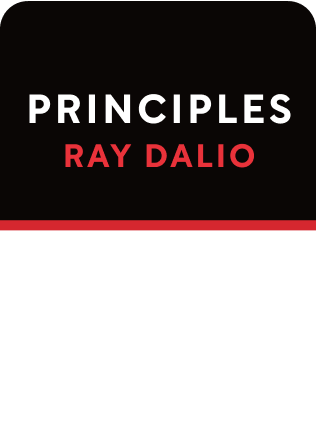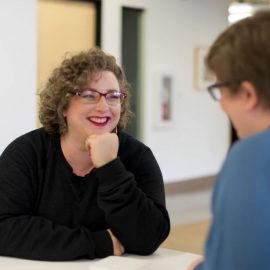

This article is an excerpt from the Shortform summary of "Principles: Life and Work" by Ray Dalio. Shortform has the world's best summaries of books you should be reading.
Like this article? Sign up for a free trial here .
What is radical open mindedness? How does radical open mindedness work, and why do you need it?
Radical open mindedness is a concept that encourages you to accept that you don’t know as much as you think you do, and that you can always learn more and change your perspective. Radical open mindedness is an important part of Ray Dalio’s prrinciples.
Read more about radical open mindedness below.
What is Radical Open Mindedness?
To recognize the truth, you must accept that you are wrong and relentlessly find ways to increase the chances that you are right. Dalio calls this radical open mindedness. Taking in more information, especially from other highly credible people, can only allow you to make better decisions, which will bring you closer to your goal.
We’ll cover a variety of themes and mindsets stemming from this concept.
You Are Blind
Part of radical open mindedness is understanding that you are blind, and that you need to figure out a way to see.
Pain from mistakes is how you learn that you are blind. Review bad decisions that you made because you failed to see what others saw. Ask others to help with figuring out your blind spots.
Recognize the importance of this mindset. If you willingly blind yourself and keep doing something wrong, you will never maximize your potential.
Even if you believe your baseline probability of being right is already high, it is always valuable to raise your probability of being right. And being open-minded to other viewpoints is how you raise your probability of being right.
Get Good Ideas from Other People
Accept the possibility that others might see something better than you and point out threats and opportunities you don’t see.
People who make the best decisions are rarely confident that they alone have the best answers. What is the probability that, with your one brain, you have the best answer that can’t be improved by the other seven billion people on earth?
You’re looking for the best answer that exists, not simply the best answer that you can come up with yourself. The probability of your always having the best answer is very small.
But don’t just trust every opinion you get. Weigh a person’s opinions by how believable they are about the subject. This is the idea of “believability-weighted decision making,” which we’ll cover later.
If multiple believable people say you’re doing something wrong but you don’t think you are, you’re probably biased.
Don’t Worry About Producing the Right Answers
A common problem, especially among high achievers, is wanting to be the one to produce the correct answers. Our environment stresses this—parents and schools want you to have the right answers on tests and be the one producing the bright ideas.
But taken too far, this mindset can make you close-minded to other ideas and what other people have to offer.
If you value being right and having the best ideas above all, you shouldn’t care if the right answer comes from you or from someone else. Focus on finding the truth and the best ideas.
Mental Maps x Humility
Chart yourself on two dimensions: 1) humility and open-mindedness, and 2) mental maps, or what you know and how you reason.
Many people have low values for both, and they remain trapped there. They know little, yet they are convinced they know everything. (Shortform note: This is similar to the Dunning-Kruger effect, a cognitive bias where people who are bad at something are incapable of recognizing how bad they are.)

———End of Preview———
Like what you just read? Read the rest of the world's best summary of Ray Dalio's "Principles: Life and Work" at Shortform .
Here's what you'll find in our full Principles: Life and Work summary :
- How Ray Dalio lost it all on bad bets, then rebounded to build the world's largest hedge fund
- The 5-step process to getting anything you want out of life
- Why getting the best results means being relentlessly honest with everyone you work with






